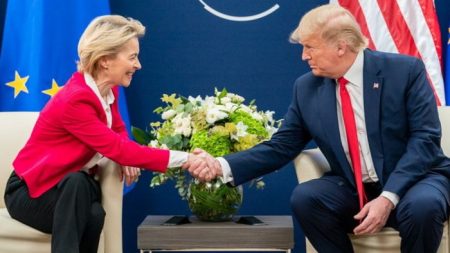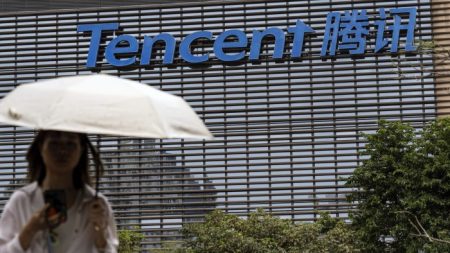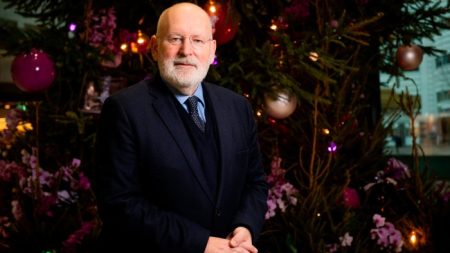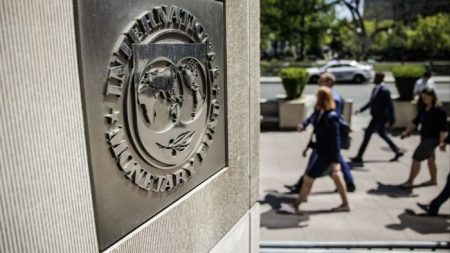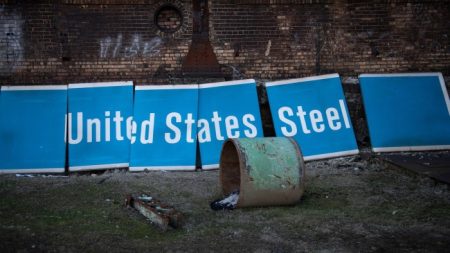Unlock the Editor’s Digest for free
Roula Khalaf, Editor of the FT, selects her favourite stories in this weekly newsletter.
Mexicans will vote for a new president and thousands of local leaders on Sunday after the deadliest campaign in recent history, as criminal groups demonstrated their growing hold on the country’s politics.
Two women are leading the race for president, with polls showing a clear lead for the leftwing ruling party’s Claudia Sheinbaum over the opposition’s Xóchitl Gálvez after a polarising and violent campaign.
Latin America’s second-largest economy has a historic opportunity to attract foreign investment as the US and China wage a trade war, but the next leader must first tackle a wide fiscal deficit, high levels of violence and creaking energy and water infrastructure.
International drug cartels and local gangs have extended their reach into many aspects of the economy from agriculture to the oil industry. The violence reached record levels during President Andrés Manuel López Obrador’s administration, with more than 175,000 people murdered and another 43,000 gone missing in less than six years.
In the run-up to the vote some 36 people seeking public posts were murdered, with observers still on edge ahead of polling day. Electoral authority INE said it would not install 175 polling stations because of violence and local conflicts.
“There is a big distortion of people’s right to choose,” said Lisa Sánchez, director of non-profit organisation Mexicanos Unidos Contra la Delincuencia.
“Beyond the elections what we see in Mexico is that there are systems of criminal governance . . . where the job isn’t necessarily done for the benefit of the voters.”
Candidates have been attacked for refusing to support a criminal gang or backing a rival group, but in most cases the crimes are never solved. Gangs have also kidnapped candidates and on Thursday set fire to a building where ballots were being stored in Chiapas state.
This week, Alfredo Cabrera, a mayoral candidate in the Pacific coastal state of Guerrero, was shot dead at point-blank range at his final rally despite having armed National Guard protection.
Though security is voters’ top concern, many are making their choice based on their broader opinion of López Obrador, a charismatic populist who raised the minimum wage and expanded social programmes. Mexico’s economy is receiving robust foreign investment and last year became the US’s top trading partner.
His supporters are hoping for more of the same from Sheinbaum.
Rita María Flores, 61-year-old tailor from Veracruz, said she planned to vote for Sheinbaum as “she’s an educated woman and she’s doing a lot for the country.”
Though his approval ratings are in the mid-60s, López Obrador also elicits strong opinions from his detractors, who worry he is centralising power in the presidency, has damaged the fragile public health system, and has handed extraordinary economic power to the military.

Jessica Velasco, 36-year-old psychologist who was heading to vote for Gálvez and opposition candidates, said she at least wanted a divided congress “so they can’t approve what they want when they want . . . so they have to debate, so there is democracy”.
Turnout is expected to be high but there is uncertainty over how much power the ruling party will have in congress to try to implement constitutional changes to institutions such as the Supreme Court.
Polls suggest local races like the mayoralty of Mexico City, which Sheinbaum held until last year, are much closer, with some urban middle-class voters more inclined to punish the ruling party for its record in government.
A former climate scientist, Sheinbaum has led throughout the campaign by sticking to a script of continuity with hints of change on issues such as renewable energy. In her final campaign speech she mostly spoke about her mentor’s policies and achievements.
“More and more we see a candidate that is very close to López Obrador’s ideas and with a personality close to his too,” said Mexican pollster Lorena Becerra.
The winner will not take office until October but will have to make big decisions quickly on how to cut the largest budget deficit since the 1980s, how much support to give indebted state oil company Pemex and what kind of judge to nominate to the Supreme Court.
Gálvez has promised a more confrontational approach to tackle organised crime in the country, while Sheinbaum has vowed to continue the president’s “root causes” strategy and beef up investigative capacity. But with national security forces increasingly concentrated in the military, bringing down homicides sustainably will be difficult.
“It’s going to be a complicated presidential term,” Becerra said. “It’s a much more complicated country than the one [López Obrador] took on.”
Read the full article here




